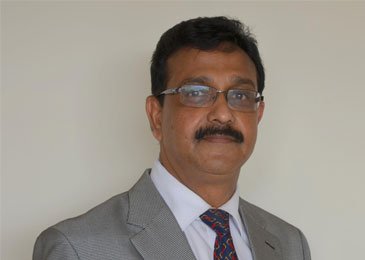"India needs dedicated central agency to handle epidemics"
October 09, 2014 | Thursday | News | By Rahul Koul Koul
"India needs dedicated central agency to handle epidemics"
Dr BR Das, �president - Research and Innovation, mentor - Molecular Pathology and Clinical Research Service, SRL Diagnostics.
The recent Ebola virus outbreak has posed many challenges across the globe and the main reason behind this is ignorance and lack of preparedness to deal with it.
As per Dr BR Das, �president - Research and Innovation, mentor - Molecular Pathology and Clinical Research Service, SRL Diagnostics, "Before the emergence of healthcare threats such as SARS, Bird Flu, and Novel Swine Flu, India's response during such epidemics was ad-hoc and pretty delayed. Nevertheless post SARS, India is fast learning to handle such challenges successfully. Depending on the nature of the epidemic, apex organizations involved in medical research such as Indian Council for Medical Research (ICMR), National Institute of Communicable Diseases (NICD), National Center for Disease Control (NCDC) guide and govern the activities. Strategically, they work with most states recruiting Medical Officers and various cadres of Health Care Providers from Medical Colleges, District Hospitals and Community Healthcare Centers (CHCs) to disseminate the steps and control measures during epidemic situations."
However, Dr Das added, "Though presently there is a fair progress in our response to epidemics, there is still a need to establish a central agency which could effectively coordinate with all concerned organizations and which can continuously and proactively monitor for any possible health contingencies."
On being asked about what should be the key take-away lessons for India from the Ebola outbreak, Dr Das feels that it is a wake-up call to build strong public health systems, including disease surveillance measures; early warning systems and improved epidemic preparedness measures.
As per Dr Das, "the management of such large magnitude and relatively novel disease outbreaks is beyond the purview of our current healthcare system and emergency response mechanisms. Like any developing nation, India is majorly dependent on the technical, operational and financial support from global health agencies such as World Health Organization (WHO), Red Cross, and United State's Center for Disease Control (CDC). Indian healthcare authorities are fast realizing the need and hopefully will learn from certain SEA countries for developing rapid response mechanisms."
Talking about the reasons for the lack of effective cure which as per Dr Das are complex, he said, "Though researchers are actively involved in developing effective drugs and vaccines against potentially hazardous viruses and bacteria, unfortunately there is a huge gap in funding this research till the last phase of development. Particularly for emerging infections which are common to low economic regions such as Africa and Asia. Similarly drug and vaccine trials in tropical regions with limited infrastructure are difficult and costly. Major pharmaceutical companies have shown little interest in developing effective treatments for emerging infections. As there's no incentive for the commercial risks of research and companies naturally prefer to focus on diseases that can sustain large markets of wealthy regular users. Last but not the least, most of these emerging viruses and bacteria mutate rapidly which could make them more transmissible or reduce the effectiveness of the drugs and vaccines in pipelines."
Elaborating on the government's role, Dr Das told BioSpectrum, "In order to encourage new drug research and success outcomes, the government needs to arrange for funding and collaborative opportunities, linking National and International research groups. Also the government needs to offer tax incentives to undertake research activities pertaining to new drug development that would otherwise not be regarded as profitable. Apart from this, the government can explore adopting BRAT framework a way to "move toward an assessment that seeks to incorporate all relevant aspects of benefit and risk." The idea is to develop clearer guidelines for regulators in making decisions about the benefits and risks of various drugs. Ultimately, this approach could also be used to give clinicians and patients more discretion regarding the risks they are willing to bear with the newly developed drugs."
Dr Das felt that the PPP model is the right way to go forward. "India's health ministry has a plan in place to deal with emerging health emergencies. However, it is important to keep such plans 'dynamic', through PPP models. The private and public sectors comprising diagnostic companies, R&D centers, biotechs, academia, governments, regulators, and healthcare professionals need to work together. The government should immediately engage the R&D set-ups in diagnostic industry biotechnology sector and various associated governmental agencies to undertake research on emerging health threats."
"In fact, the 2009 H1N1 pandemic situation is an excellent example of how public and private organizations can be join forces to handle epidemic of any magnitude. A similar collaboration can be extended proactively for conducting research and monitoring emerging health threat trends in India," concluded Dr Das.









